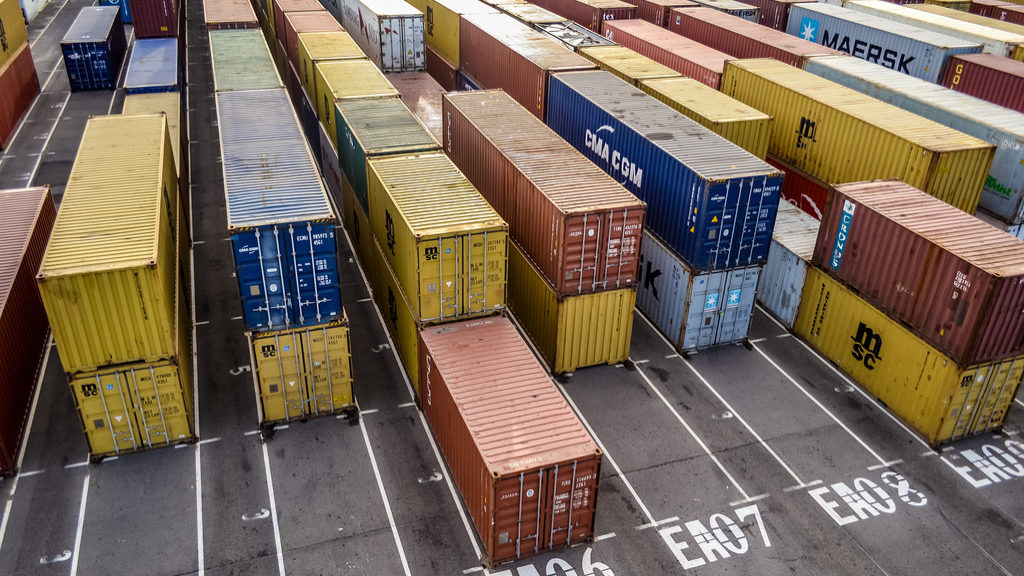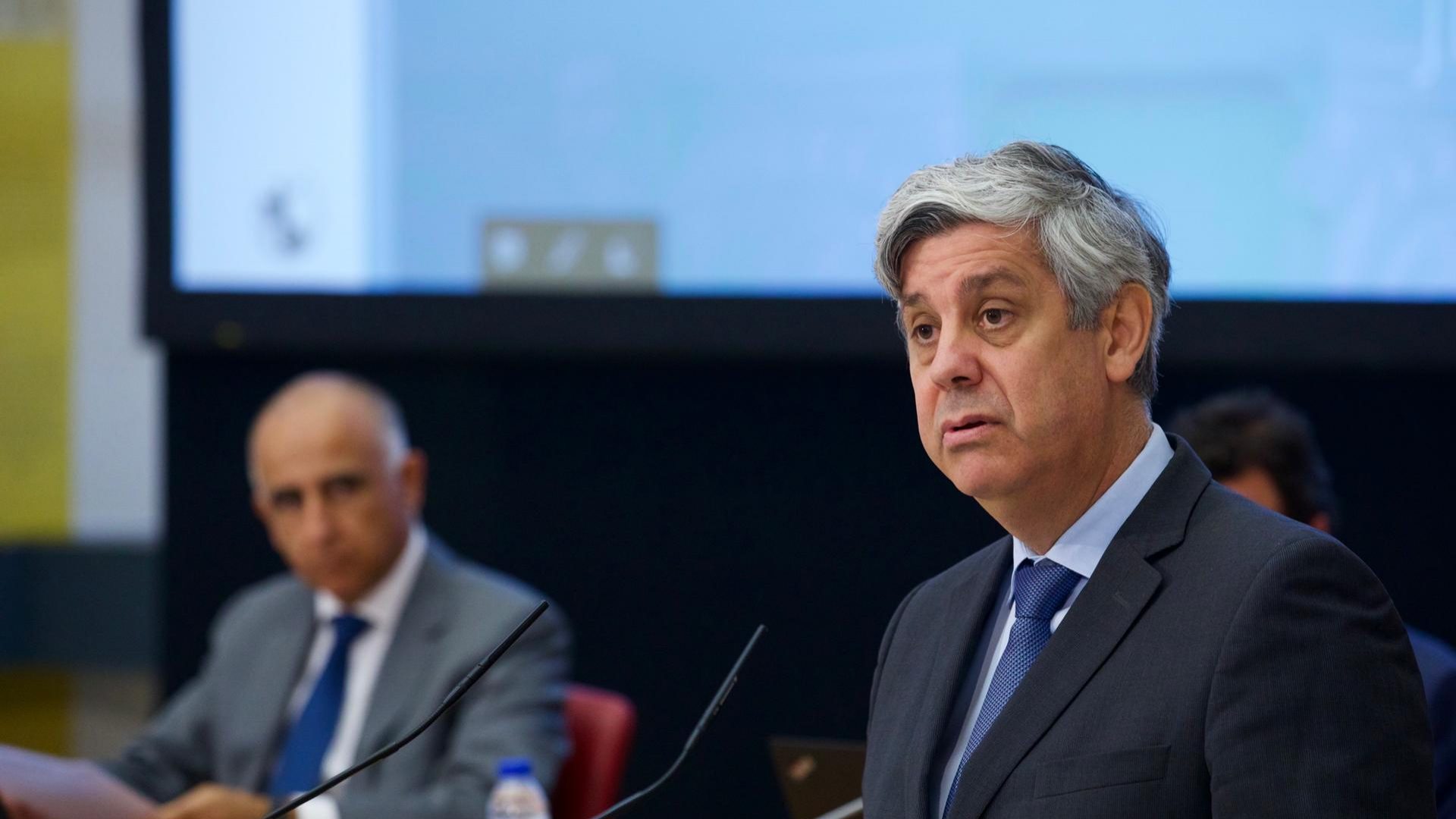Portuguese pharmaceutical companies more than doubled sales to the US ahead of ‘Liberation Day’
Health companies exported 160% more in the first quarter than between January and March 2024. Industry remains “confident" in production capacity and global supply chain.
Portuguese pharmaceutical companies tried to get ahead of the tariffs imposed by the United States, the second largest destination of their sales, by getting their products and drug ingredients across the Atlantic before the so-called ‘Liberation Day’ on 2 April.
In the first quarter of this year, health exports to the US grew 32.5% year-on-year to 484 million euros. From February to March alone, these companies more than doubled their exports to the world’s largest economy, from 131 million to 286 million euros. In practice, the United States represented 16% of sales of pharmaceutical products and basic pharmaceutical preparations and rose to 69% in the space of a month.
In January, the month Donald Trump took office, the US market was worth just 7% of the sector’s exports, or around 63 million euros. However, in mid-February, the United States agreed to tax pharmaceutical products at “25% or more” and led sales to increase from 63 million euros at the start of the quarter to almost 300 million at the end of March.
On Monday, the National Statistics Institute (INE) released new data on Portuguese exports for April, which shows that the activity of pharmaceutical companies in the US market — which had intensified in previous months — stabilised again in the fourth month of 2025. Organisations linked to the sector have ruled out any comments or explanations, but the drop coincides with the fact that, on the much-feared 2nd of April, the Trump administration revealed that pharmaceutical products would be left out of the reciprocal tariffs, along with copper products.
After having escaped the reinforcement of customs duties, the industry remains at an impasse and, at the same time, preparing for any onslaught from the US President. At the beginning of May, after the avalanche of tariffs, Donald Trump said he would announce tariffs on pharmaceutical products in “two weeks”, just after signing an executive order to promote their manufacture in the US. What is certain is that five weeks have passed and there has been no news from the White House to that effect.
Companies confident in the value chain
The multinationals in the sector that are present in Portugal corroborate the volatility and international dynamism that the market is facing, although they say that the situation is still manageable and that they are working to mitigate “any potential impacts on patients”.
“The situation continues to be very volatile and we are closely monitoring and assessing the potential impacts as more details become available. In the meantime, we are confident that with our global supply chain and production capabilities, we can continue to provide medicines to patients, whether they are people or animals,” said an official source from Germany’s Boehringer Ingelheim.
“The external environment is dynamic and evolving rapidly. We consider the current situation to be manageable and we are confident in our ability to deal with the changes in policy and implement any potential mitigation measures in a measured and effective manner,” commented Switzerland’s Roche.
As a trustee of the European Federation of Pharmaceutical Industries and Associations, Bial’s CEO, António Portela, signed the letter that dozens of pharmaceutical companies sent to Brussels asking the European Commission for support in maintaining operations in the European Union in the face of this risk in Washington and increased EU regulation.
When asked about the letter, an official source from the Portuguese pharmaceutical company said that it outlines measures to ensure that Europe remains a base for research, development and manufacture of medicines, namely “the strengthening of European intellectual property standards, the adoption of a regulatory framework favourable to innovation and coherence between environmental and chemical policies”.
The Portuguese Pharmaceutical Industry Association (Apifarma) refuses to comment on this movement in the sector and the US President’s protectionist policy, but assures ECO that “it is aligned with the position of EFPIA [European Federation of Pharmaceutical Industries and Associations] and is following developments”.
Healthcare sales soar 160% in the first quarter
Overall, between January and March, health companies sold 2.244 billion euros abroad, which represents an increase of around 160% compared to the first three months of 2024, according to the Portuguese Agency for Investment and Foreign Trade (Aicep) based on information from INE.
Health Cluster Portugal notes that the growth trend in exports from the health sector, which was a record last year, will continue in 2025. “With regard to the type of product, the biggest increase was in the pharmaceutical preparations manufacturing segment, from a total of 698 million euros recorded in the same period last year, to 2,021 million euros between January and March 2025, an increase of 189.5%. In second place is the export of basic pharmaceutical products, with an increase of 71.4%, corresponding to a total of 72 million euros,” said the health cluster in response to ECO.
It should also be noted that Germany dethroned the United States as the main destination for Portuguese exports in the health sector, with a volume of around 1,268 million euros in the first quarter, but only took the lead because of January and February, months in which exports of pharmaceutical products to Germany totalled 1,235 million. In March, with the worsening of the trade war and the need to invest in other markets, exports of these goods and substances to Europe’s largest economy plummeted to 20.8 million euros.




